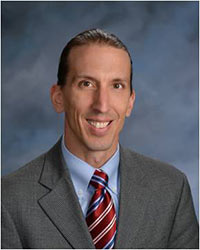By John Espinola, M.D.
Executive Vice President, Health Care Services
The divisions in Washington D.C. over the Affordable Care Act are important. But to those of us working in the trenches of healthcare, the more important discussion to have is how we solve healthcare's biggest problems.
We listen to patients - after all, that's who healthcare needs to work for the most. It doesn't take long to draw the conclusion that healthcare does indeed have some big problems. To patients, these issues matter most:
- It costs too much.
- I don't get what I need.
- I often get what I don't need.
- I don't like the experience I have.
Upcoming blog posts will address what leads to these problems. We hope these posts set up an ongoing dialogue about how we solve these problems. We here at Premera do not pretend to have all the answers. We're willing to collaborate with patients, providers, policymakers, and other key healthcare players in finding the solutions.
Costs are too high
This one is fairly obvious, right? It's hardly a secret that healthcare spending has grown faster than the economy over the last 45 years. Often much faster. We now spend 17.8 percent of our gross domestic product (GDP) on healthcare, up from 13.3 percent less than 20 years ago.
Our healthcare spending far outpaces the rest of the world. Per person, the U.S. spends twice the amount that other developed countries spend on healthcare. That's according to the Organization for Economic Cooperation and Development.
And if you think the rise in overall healthcare costs is alarming, don't look too closely at the growth in categories like prescription drugs. Spending on medicines is far outpacing the overall growth in healthcare costs. In recent years, increases in expensive specialty therapies drove that spending. The forecasts suggest growth will continue over the next decade.
We could write much more on this topic. But the bottom line is that healthcare is far too expensive in the United States. In future posts, we'll talk about what Premera is doing to help contain costs. That includes encouraging the use of more generic drugs and finding less expensive treatments that still keep people healthy.
__

John Espinola, MD, MPH is Premera's Executive Vice President of Healthcare Services. He is also board certified in geriatrics and internal medicine. Read more about Dr. Espinola on our executive bios page.